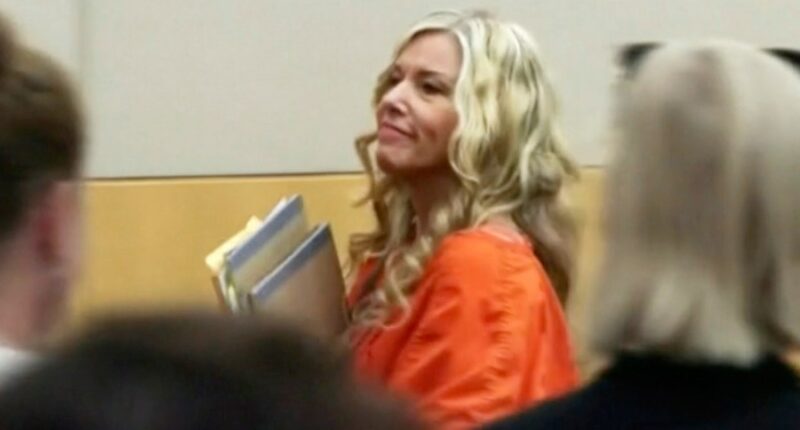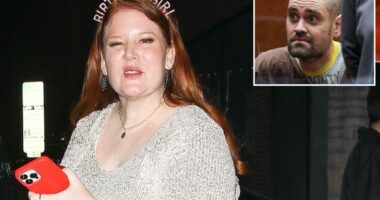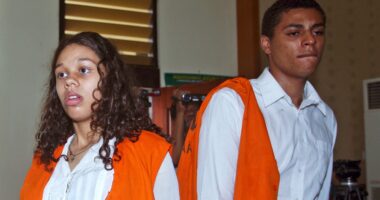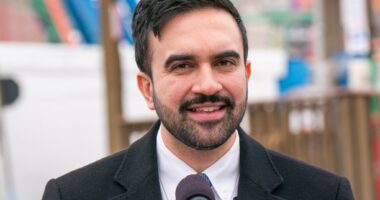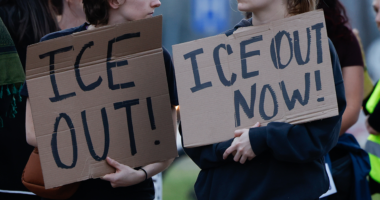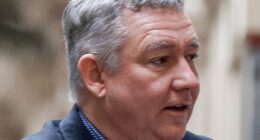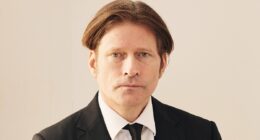Share this @internewscast.com

PHOENIX (AP) — Just before an Idaho mother with extreme apocalyptic beliefs received two additional life sentences, she criticized the prison environment and the justice system, lamenting that the evidence rules hinder presenting both sides of a story.
Judge Justin Beresky abruptly interrupted, saying: “Actually, they do.”
This incident underscored the ongoing friction between Lori Vallow Daybell—who chose to represent herself in two murder conspiracy trials in Arizona—and Beresky, who did not hold back when he spoke in court.
Beresky countered Vallow Daybell’s claims that she was blocked from presenting her perspective and that she didn’t receive a fair trial, stating she wasn’t being truthful. He added that the media spotlight she sought will now fade away since her court proceedings have concluded.
“The amount of contemplation, calculation, planning and manipulation that went into these crimes is unparalleled in my career,” said Beresky, who has been a Maricopa County Superior Court judge since 2017 and has presided over other high-profile cases.
Friday’s sentencing ended the legal saga of Vallow Daybell, 51, who will likely spend no time in an Arizona prison because she already was serving three life sentences in Idaho for killing her two youngest children and conspiring to kill a romantic rival.
In Arizona she was convicted of conspiring to kill her estranged husband, Charles Vallow, and her niece’s ex-husband, Brandon Boudreaux. Charles Vallow was fatally shot, while Boudreaux survived.
Vallow Daybell maintained that she did nothing wrong and said the string of deaths were simply tragedies.
She turned to her own religious beliefs in saying she believes she is among servants who Jesus is sending into prison to become warriors and who, ultimately, will be released to serve him.
Beresky implied that she got the meaning wrong when she referenced a verse about prisoners going free.
“That is a verse about people that accept Jesus can be in prison and they will go free when they die and go to heaven, but it will take an act of God for you to go free,” the judge said. “In short, you should never be released from prison.”
Vallow Daybell’s trials in Phoenix were infused with her religious beliefs, including that people in her life were possessed by evil spirits. She routinely sparred with Beresky, occasionally leaning over to consult with her advisory counsel.
Charles Vallow’s sister, Kay Woodcock, praised the judge’s demeanor outside the courtroom.
“I don’t think we could have had a better judge,” she said. “He is a better man than a lot of people putting up with her like he did.”
Mel McDonald, a retired Maricopa County judge who was not involved in the trials but watched them, said Beresky did an exceptional job of maintaining courtroom decorum and demonstrated extraordinary patience despite obstructive tactics from Vallow Daybell.
“He gives her latitude,” McDonald said. “But he doesn’t let her run wild.”
Last month, during the trial over the conspiracy to kill Boudreaux, Vallow Daybell falsely accused Beresky of yelling at her after he explained that her efforts to introduce favorable evidence about her character could open the door to jurors hearing about her convictions in Idaho and for Vallow’s death.
“You don’t need to talk to me that way,” Vallow Daybell said.
“Take her out,” Beresky told a security officer, who led her from the courtroom.
In defending herself, Vallow Daybell struggled with legal matters that most lawyers consider routine, such as lining up witnesses to testify. She insisted on exercising her speedy trial rights and rejected the judge’s offer for later dates, yet complained about not having enough time to prepare. She also tried to get Beresky removed from the case, arguing that he was biased against her.
In another moment emblematic of the tensions between judge and defendant, Beresky expressed skepticism during jury selection for her second Arizona trial when she claimed she was too sick to move forward. The proceedings were postponed for the day.
But the trial continued, with Beresky later saying there was no objective evidence to support her claims.
___
Associated Press writers Hannah Schoenbaum in Salt Lake City and Sejal Govindarao in Phoenix contributed.
